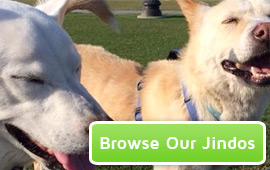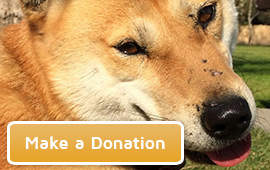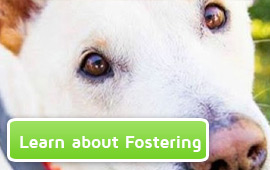Confessions of a dog trainer: I have a reactive dog (Part 1)
by Bobbie Bhambree (Victoria Stillwell’s “Positively”)
(Bobbie Bhambree is the Founder & Director of DogCentric Training, LLC, and has been a professional dog trainer for 13 years. Bobbie is a CPDT, member of IAABC, member of APDT and is a licensed trainer with VSPDT.)
It was a humbling experience, as a dog trainer, when I moved into New York City and had a dog that barked and lunged at other dogs when walking down the street. My dog, Charlotte, is generally a little anxious, and life in the city was quite an adjustment for her. I know I’m really good at my profession, but suddenly I was able to empathize with my city clients and all that it takes to support a dog that is upset or anxious outside. I also did not wear any clothes with my logo on it for the first month I lived in the city, horrified that people would see this dog trainer with a “bad dog.” Who would hire that person?! It was a tough month of acclimation for all of us.
Unfortunately for many dog owners, reactivity is a common behavior issue. In some cases, the dog is reactive to inanimate objects that move, such as trucks or scooters. Sometimes they react towards people, such as joggers, people holding objects like bags, or people walking with canes. Dogs can also be reactive to kids, loud noises, or a sudden burst of activity. For this article, I am going to focus on dog-dog reactivity, specifically leash-reactivity, for the purpose of explaining how I helped Charlotte. The first step is to understand the behavior of reactivity and what motivates the dog to put on a huge display that is embarrassing and stressful to the person on the other end of the leash.
What is reactivity?
I like Dr. Patricia McConnell‘s definition of reactivity:
“REACTIVITY? What are we talking about here? When I use the term I am talking about what we usually think of as “over reactivity,” or “reactivity” that we see as inappropriate. After all, a loose body greeting is a “reaction” to another dog, right? In this case, I am talking about barking, lunging, snarling, snapping, stiffening etc… in other words, doing things we humans don’t like that makes us nervous that the behavior might be followed by aggression or trouble of some kind. It’s not a great term, but it’s better than “aggression,” since so much of behavior that we consider problematic is not aggressive at all.”
Why are dogs reactive?
Dogs can be reactive towards other dogs for many reasons. Some fear or dislike other dogs because they had a bad experience or were under socialized when younger (lacked positive experiences with other dogs). These dogs are barking and lunging to keep other dogs at bay. Some dogs LOVE other dogs so they bark and lunge out of frustration of being restrained by the leash. These dogs are desperate to meet every dog and tend to do well with dogs in off leash situations. Dogs like Charlotte want to control the space around them and the actions of other dogs. The leash prevents her from doing so and therefore she is reactive.
In all cases, it can be embarrassing and stressful for the human partner as well as the dog. A dog trainer, such as myself, who uses reward-based techniques and has training in behavioral science can help you transform your dog’s behavior. I am a fan of finding such trainers who have CPDT status (Certified Professional Dog Trainers). You can also find excellent trainers using the trainer search on Victoria Stilwell’s website, where trainers have been VSPDT certified. I have both CPDT and VSPDT status and am happy to work with you or to recommend an equally qualified peer.
In part 2 of this blog, I will give you some management tools I used to help Charlotte from reacting to things that bothered her. Management is important because it helps to create an environment in which the dog has little or no opportunity to practice the behavior you want to change. I heard a trainer recently say that allowing a dog to practice a behavior that you are trying to change is just like pouring water into a bucket with holes. That metaphor definitely made an impact on me.
Clarity & Harmony…better way of living with your dog.
https://positively.com/contributors/confessions-of-a-dog-trainer-i-have-a-reactive-dog/



